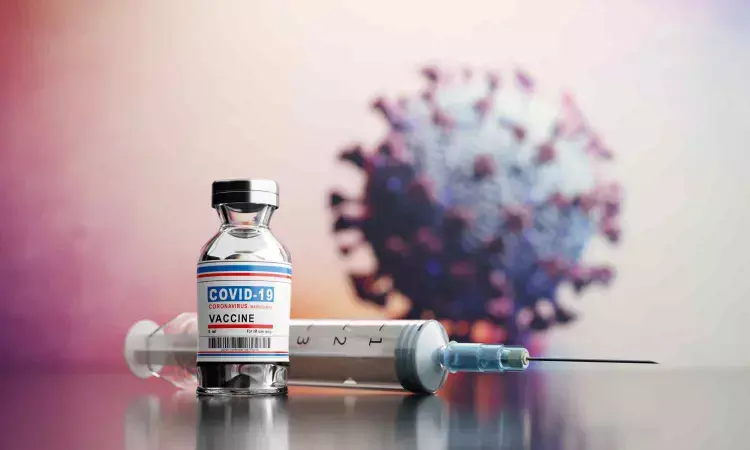- Home
- Medical news & Guidelines
- Anesthesiology
- Cardiology and CTVS
- Critical Care
- Dentistry
- Dermatology
- Diabetes and Endocrinology
- ENT
- Gastroenterology
- Medicine
- Nephrology
- Neurology
- Obstretics-Gynaecology
- Oncology
- Ophthalmology
- Orthopaedics
- Pediatrics-Neonatology
- Psychiatry
- Pulmonology
- Radiology
- Surgery
- Urology
- Laboratory Medicine
- Diet
- Nursing
- Paramedical
- Physiotherapy
- Health news
- Fact Check
- Bone Health Fact Check
- Brain Health Fact Check
- Cancer Related Fact Check
- Child Care Fact Check
- Dental and oral health fact check
- Diabetes and metabolic health fact check
- Diet and Nutrition Fact Check
- Eye and ENT Care Fact Check
- Fitness fact check
- Gut health fact check
- Heart health fact check
- Kidney health fact check
- Medical education fact check
- Men's health fact check
- Respiratory fact check
- Skin and hair care fact check
- Vaccine and Immunization fact check
- Women's health fact check
- AYUSH
- State News
- Andaman and Nicobar Islands
- Andhra Pradesh
- Arunachal Pradesh
- Assam
- Bihar
- Chandigarh
- Chattisgarh
- Dadra and Nagar Haveli
- Daman and Diu
- Delhi
- Goa
- Gujarat
- Haryana
- Himachal Pradesh
- Jammu & Kashmir
- Jharkhand
- Karnataka
- Kerala
- Ladakh
- Lakshadweep
- Madhya Pradesh
- Maharashtra
- Manipur
- Meghalaya
- Mizoram
- Nagaland
- Odisha
- Puducherry
- Punjab
- Rajasthan
- Sikkim
- Tamil Nadu
- Telangana
- Tripura
- Uttar Pradesh
- Uttrakhand
- West Bengal
- Medical Education
- Industry
COVID boosters targeting omicron subvariants of SARS-CoV-2 less protective against the now-dominant JN.1 strain: Study

Boosters that target the omicron subvariants of SARS-CoV-2 are still providing reasonably durable protection against infection, hospitalization and death from COVID-19, according to new data from a study led by researchers at the UNC Gillings School of Global Public Health.
Published today in the New England Journal of Medicine, the study found that COVID-19 boosters targeting the XBB.1.5 subvariants were most effective one month after receiving one. After four weeks, the vaccines were 52.2% effective at preventing infection and 66.8% effective at preventing hospitalization.
The vaccines were also highly effective at preventing death, but exact certainty was hard to quantify given the small number of deaths reported during the study period.
After peaking at four weeks, booster effectiveness waned over time. Effectiveness at preventing infection decreased to 32.6% after 10 weeks and 20.4% after 20 weeks, while effectiveness at preventing hospitalization decreased to 57.1% after 10 weeks.
Danyu Lin, PhD, Dennis Gillings Distinguished Professor in the Department of Biostatistics at the Gillings School, is lead author on the study. Additional co-authors include Yangjianchen Xu at the Gillings School; Yi Du, PhD, Sai Paritala, PharmD, and Matthew Donahue, MD, from the Nebraska Department of Health and Human Services; and Patrick Maloney, PhD, from the University of Nebraska Medical Center.
Using data from the Nebraska Electronic Disease Surveillance System and the Nebraska State Immunization Information System, the research team studied the efficacy of vaccination before and after Oct. 25, 2023, when the JN.1 variant began to emerge.
Vaccine effectiveness was lower in the second group, suggesting that the booster was less protective against the now-dominant JN.1 strain.
“The JN.1 subvariant has been the dominant strain in the United States this year,” said Lin. “The relatively low effectiveness of the XBB.1.5 vaccines against the JN.1 subvariant, together with the waning effectiveness over time, underscores the need for new vaccines targeting the JN.1 strain.”
Lin says the Food and Drug Administration’s general strategy is to deploy new COVID-19 vaccines annually in the fall that target the circulating strains in the spring, and that the findings in this study may contribute to this decision.
“It would be worthwhile to deploy new vaccines this fall that target the JN.1. strain,” he said.
Reference:
Danyu Lin, Durability of XBB.1.5 Vaccines against Omicron Subvariants, New England Journal of Medicine, DOI: 10.1056/NEJMc2402779.
Dr Kamal Kant Kohli-MBBS, DTCD- a chest specialist with more than 30 years of practice and a flair for writing clinical articles, Dr Kamal Kant Kohli joined Medical Dialogues as a Chief Editor of Medical News. Besides writing articles, as an editor, he proofreads and verifies all the medical content published on Medical Dialogues including those coming from journals, studies,medical conferences,guidelines etc. Email: drkohli@medicaldialogues.in. Contact no. 011-43720751


